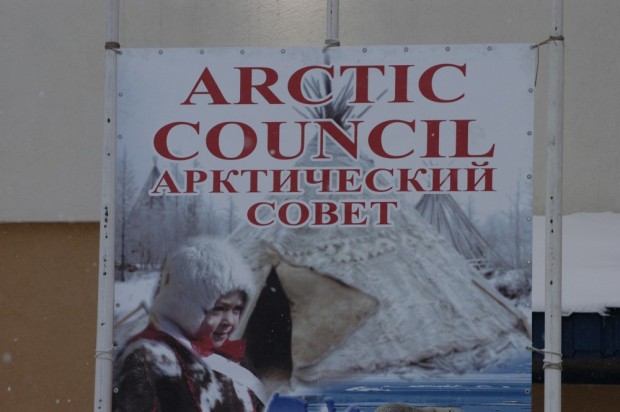“We should not close those doors and throw the keys away," says Norway PM on Arctic Council cooperation with Russia

“For the time being, Russia’s annual contributions to the Arctic Council’s budget have been suspended, pending the resumption of pragmatic work with the participation of all member countries,” the Foreign Ministry in Moscow said according to state-controlled RIA Novosti news agency.
The Arctic Council was placed in pause mode in March 2022 following Russia’s all-out war on Ukraine. Moscow at the time chaired the council, and none of the other seven members sent political participants when Foreign Minister Sergei Lavrov invited to the council’s bi-annual ministerial meeting in Salekhard in Siberia the same winter.
PM Jonas Gahr Støre at Arctic Frontiers in Tromsø. Photo: Thomas Nilsen
“We should not close those doors and throw the keys away. One day they may be opened again we will all be again around that Arctic table,” PM Jonas Gahr Støre said from the stage in Tromsø.
The Arctic Council’s secretariat coordinating the circumpolar work is located in Tromsø and Norway is currently the Chair of the Council.
Sources tell the Barents Observer about different views on the matter among the Western Arctic states of the circumpolar intergovernmental body. Not all agree with Oslo on pushing forward an “open door” option for cooperation with a war-aggressive Russia.
Norway argues that lack of contact will harm science work, especially related to exchange of climate data. Nearly half of the Arctic is in Russia, from the Bering Strait to the Kola Peninsula. Russian research institutions have since the early 1990s teamed up with Western partners since the Rovaniemi process on environmental cooperation was initiated by Finland in 1993, a few years before the formal Arctic Council was formed.
Last week, Kremlin spokesperson Dmitri Peskov warned about a possible full withdrawal by Russia from the Arctic Council.
“… if participation in some organization ceases to correspond to the interest of Russia… then, of course, special decisions can be made,” Peskov said according to RIA Novosti.
Moscow’s statement on Wednesday underlined that the question about full withdrawal is not on the table right now.
“At the moment, Russia’s payment of annual contributions to the budget of the Arctic Council is suspended until practical work in this format is resumed with the participation of all member countries,” the Foreign Ministry said.
In Tromsø, Jonas Gahr Støre said the Arctic Council remains the most important forum.
“The Arctic Council which we are now chairing is under challenging conditions, but it is and remains the most important forum for cooperation on these matters.”
“Pragmatic and practical”
Norway’s Foreign Minister, Espen Barth Eide, also attending the Arctic Frontiers conference, said the seven Western members agreed with the eighth [Russia] about the need to keep the forum relevant and at some level of contact.
“We try to find a pragmatic and practical way to keep the organization at eight alive, to maintain what we have, some research, some technical level of cooperation, but recognizing that there are limitations,” Barth Eide said, but underlined that Norway doesn’t want to use the Arctic Council for political contacts with Russia.
Speaking with scientists at an open meeting at the FRAM polar center, Barth Eide elaborated:
“We try to maintain cooperation on climate, environment, search- and rescue… further progress, I think, will come later on. It is difficult to see that as long as the war in Ukraine goes on.”
The Foreign Minister said Norway as Chair will keep the cooperation on today’s level “until we again can upgrade the cooperation.”
Meanwhile, Russia continues to build military bases on its Arctic archipelagos; Novaya Zemlya, Franz Josef Land and the New Siberian Islands.
The eight Arctic Council flags in Salekhard; Russia, Sweden, the United States, Canada, Denmark, Finland, Iceland and Norway. Photo: Thomas Nilsen
Copenhagen will next year take over the rotating chair of the Arctic Council from Oslo for the period 2025-2027.